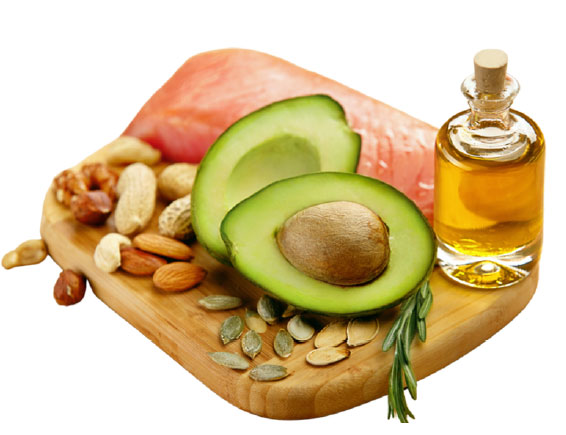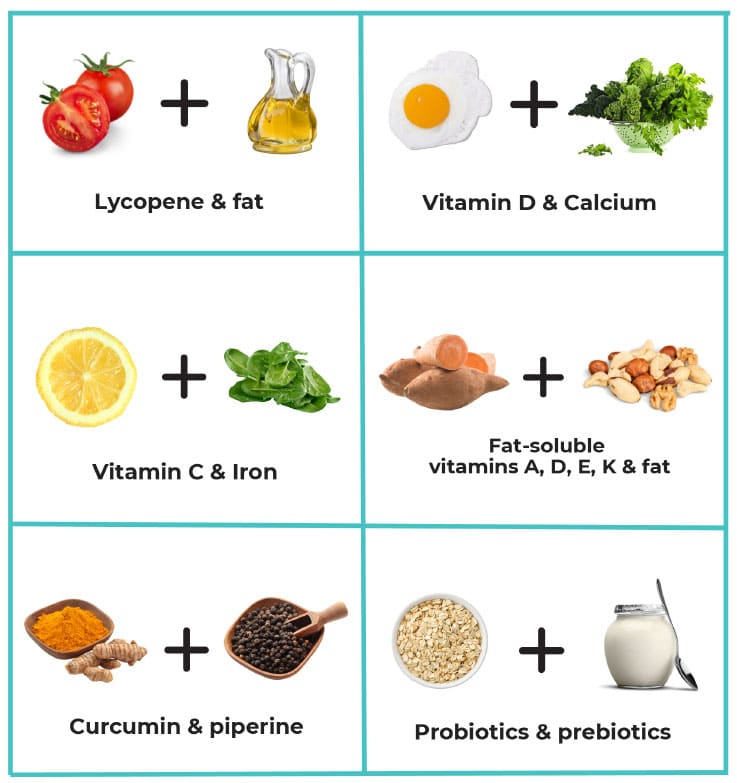Discover how a fertility diet can boost your chances of conceiving. Learn which foods to eat and avoid to enhance fertility and get pregnant faster.

Did you know that what you eat can significantly affect your chances of getting pregnant? It might seem surprising, but your diet plays a crucial role in your fertility.
Nutrition not only impacts your overall health but also influences key reproductive functions like ovulation, hormone production, and sperm quality. If you’re trying to conceive, understanding the connection between fertility and nutrition can make a significant difference.
FLCCC Senior Fellow, Nutritional and Holistic Health Dr. @kristina_carman shares some of what is covered in today’s new guide, ‘Nutrition & Fertility’ – the latest in a series focusing in #WomensHealth! Learn more and download the guide: https://t.co/o8VELrxlmT pic.twitter.com/CkVyAdpoXQ
— FLCCC Alliance (@Honest_Medicine) October 11, 2024
So, how does your diet affect your fertility, and what changes can you make to boost your chances of conceiving? In this post, we’ll explore the essential nutrients, dietary habits, and lifestyle changes that can enhance fertility for both women and men. To get started quickly, you can download our comprehensive PDF guide to the fertility diet below.
This guide was written by FLCCC Senior Fellow Dr. Kristina Carman, a nutritionist with a passion for women’s and men’s health. It’s a massive guide, almost 20 pages full of ways you can boost fertility with nutrition. If you haven’t got time for the full guide right now, no sweat! Keep scrolling for a quick summary of the ways nutrition can influence your reproductive health.
How Does Nutrition Affect Fertility?
Your diet plays a pivotal role in your reproductive health. The foods you consume provide essential nutrients that support hormonal balance, ovulation, and sperm production. Poor nutrition can lead to hormonal imbalances, affecting your ability to get pregnant.
Research indicates that blood sugar dysregulation can impact both female and male fertility. Imbalanced blood sugar levels trigger the release of hormones like cortisol and adrenaline, which can disrupt the reproductive cycle. Additionally, blood sugar dysregulation increases inflammation in the body, known to interfere with hormone balance and reproductive health.
The Impact of Weight on Fertility
Overweight and Obesity
Being overweight or obese can significantly impact both female fertility and male fertility. For women, excess weight may result in irregular menstrual cycles, ovulation issues, difficulty conceiving, and a higher risk of miscarriage. In men, obesity is associated with lower sperm count and quality, and it can also increase the risk of erectile dysfunction. Maintaining a healthy weight through a balanced diet is crucial for optimizing fertility.
Underweight
On the other hand, being underweight can also negatively affect fertility. In women, low body weight and low body fat percentage can result in hormonal imbalances leading to irregular menstrual cycles or the absence of menstruation (amenorrhea). An irregular menstrual cycle may make it difficult to predict ovulation. For men, low weight status has been linked to decreased sperm count and motility as well as reduced testosterone levels.
Importance of a Balanced Diet
A balanced diet rich in essential nutrients supports a healthy weight and optimal reproductive function. Incorporating a variety of whole foods ensures you receive the vitamins and minerals necessary for fertility.

Essential Nutrients for Fertility
Healthy Fats
Fat plays a crucial role in reproductive health as it aids in hormone production and the storage of essential vitamins A and D, which are necessary for proper metabolic functions in the body. Incorporating healthy fats from sources like avocados, olive oil, nut butters, and fatty fish such as salmon and sardines is vital for sustaining balanced hormone levels required for conception.
Omega-3 fatty acids are especially important. They are essential for hormone production and regulation and play an important role in brain development. Good sources of omega-3s include fatty fish like salmon, flaxseed oil, chia seeds, and walnuts. If you are trying to get pregnant, focus on seafood that is lower in persistent environmental chemicals and mercury.
Protein
Proteins are crucial macronutrients as they aid in muscle development and the repair of cells damaged by illness or injury. Additionally, proteins are involved in the production of hormones and enzymes necessary for conception. To sustain healthy levels of fertility hormones like estrogen and progesterone in women, and testosterone in men, it is vital to consume protein-rich foods such as lean meats, poultry, eggs, nuts and seeds, legumes (beans and lentils), as well as fish and seafood.
Carbohydrates
Carbohydrates are the body’s main source of fuel. They provide energy for your cells to function properly and keep your hormones in balance. When it comes to fertility, it’s important to make sure you get enough complex carbohydrates as part of a healthy diet. Complex carbohydrates are found in whole grains, legumes, fruits, and vegetables; these foods contain more fiber than simple carbohydrates such as white bread or pastries. Eating complex carbohydrates can help improve hormonal balance and reduce inflammation, which can increase fertility levels in both men and women.
Fiber
Fiber is an often overlooked component of nutrition that can have an impact on fertility. It is well documented that a healthy diet and lifestyle are essential to maximizing fertility and improving the chance of conceiving. Increasing your intake of dietary fiber can help regulate hormones involved in ovulation, which can increase the chances of successful conception.

Key Micronutrients for Boosting Fertility
Folate and Folic Acid
Folic acid, also known as Vitamin B9, is recommended before and during pregnancy because of its proven role in reducing the risk for neurological problems in the developing fetus, like spina bifida. This nutrient is important for both men and women. It helps to prevent birth defects and supports healthy cell growth. Good sources of folate include dark leafy greens like spinach, asparagus, broccoli, Brussels sprouts, avocados, oranges, beans, lentils, and fortified cereals.
Vitamin B12
Vitamin B12 supplements may help fertility by increasing sperm number and quality and protecting sperm cells from DNA damage. Vitamin B12 is naturally present in animal foods (meat, poultry, fish, eggs, and dairy), fortified breakfast cereals, and nutritional yeasts. However, the body is able to absorb more Vitamin B12 from dietary supplements than from foods.
Vitamin D and Fertility
Vitamin D plays an important role in reproductive health, both for women and men. It’s been linked to better egg quality in women by helping with ovulation and implantation, and in helping to prevent miscarriages. In men, it helps with sperm production, motility, and morphology. Low levels of vitamin D have also been linked to infertility in both sexes. Higher vitamin D levels may also reduce the risk of complications such as gestational diabetes, preeclampsia, or polycystic ovarian syndrome.
Choline
Choline is a nutrient that is important for the development of the fetal brain and nervous system. It also plays a role in liver function and metabolism. Studies have shown that low choline intake may negatively impact fertility, especially in women. One study found that women who consumed less than the recommended daily intake of choline were more likely to have infertility issues.
Iodine
Iodine is an essential nutrient required for the synthesis of thyroid hormones, which play a crucial role in reproductive health. Inadequate iodine intake can lead to thyroid dysfunction, which may negatively impact fertility. Studies have shown that iodine deficiency in women can lead to irregular menstrual cycles, decreased fertility, and an increased risk of miscarriage.
Antioxidants
Antioxidants play a crucial role in minimizing oxidative damage to cells, which can negatively affect fertility. Vitamin C, for example, is a potent antioxidant that helps protect eggs and reproductive tissues from oxidative stress. Foods rich in antioxidants include citrus fruits, berries, red bell peppers, tomatoes, and dark leafy greens.
For quick reference, here’s a grid that shows how foods & nutrients work together to provide great health benefits:

Managing Blood Sugar for Fertility
Blood Sugar and Its Effect on Fertility
Blood sugar, or glucose, is the primary source of energy for your cells, derived from the food you eat. Maintaining blood sugar levels within a healthy range is crucial for proper body function. Imbalances in blood sugar levels, whether too high or too low, can lead to serious health complications, including those related to fertility.
Excess glucose in the bloodstream can hinder the implantation of a fertilized egg into the uterine wall, making conception difficult or impossible. Moreover, pregnant women with uncontrolled diabetes are at risk for miscarriage and other pregnancy-related complications, such as preeclampsia and gestational diabetes.
The Role of Insulin
Insulin is a hormone produced by the pancreas that helps regulate blood sugar levels. Healthy insulin levels are important for hormonal balance and fertility. When insulin levels become too high or low, it can affect other hormones as well as ovulation and fertilization. If insulin resistance becomes severe, it can cause infertility.
Tips to Manage Your Blood Sugar
- Eat a balanced diet rich in fruits, vegetables, lean proteins, whole grains, and healthy fats.
- Reduce or eliminate processed foods from your diet.
- Exercise regularly but don’t overdo it—aim for 30 minutes per day of moderate exercise.
- Get enough sleep—aim for 7-9 hours per night.
- Reduce stress with activities such as yoga or meditation.
- Talk to your doctor about supplements and/or medication if necessary.
Foods That Help with Blood Sugar Management
- Tomatoes
- Berries
- Eggs
- Salmon
- Leafy greens
- Mushrooms (low glycemic foods)
- High-fiber foods such as whole grains, veggies, and fruits

Detoxification and Fertility
Oxidative Stress and Antioxidants
Oxidative stress is caused within our cells by an imbalance of free radicals and antioxidants. Oxidative damage in cells can impair fertility. Antioxidants play a crucial role in minimizing oxidative damage to cells, which can negatively affect fertility.
Phytochemicals
Phytochemicals are organic compounds found in plants that provide various health benefits. While there is still much to learn about the effects of phytochemicals on human health, research has shown that they can help protect against chronic diseases and may also be beneficial for fertility health. Non-nutritive compounds in fruits, vegetables, whole grains, and other plant foods may reduce the risk of major chronic diseases. All phytochemicals are antioxidants.
Toxins and Hormone Disruptors
Hormone disruptors are a type of environmental pollutant found in everyday products like plastics, pesticides, and personal care items. These chemicals have been known to alter the way hormones work in our bodies, which can cause serious health problems. For women and men trying to conceive, exposure to hormone disruptors can interfere with reproductive functions and decrease optimal fertility.
How to reduce hormone disruptors:
- Avoid products that contain toxic chemicals, such as bisphenol A, found in plastics and food packaging.
- Check labels on products for potential toxins.
- Eat organic whenever possible to reduce exposure to synthetic pesticides or herbicides.
Lifestyle Factors Affecting Fertility
Alcohol
Alcohol can negatively impact both female and male fertility. For women, alcohol consumption can lead to irregular periods, decreased ovulation, early menopause—all of which make it more difficult to get pregnant. For men, alcohol consumption has been linked with a decrease in testosterone levels, lower sperm count, poor sperm quality, etc. If you’re trying to get pregnant, it’s best to limit your alcohol intake or give it up altogether.
Exercise
Moderate exercise is beneficial for fertility; however, over-exercising can have negative consequences on fertility. Studies have found that exercising too much or too intensely can lead to amenorrhea (absence of menstruation) or irregular periods in women, which affects their ability to conceive. In men, excessive exercise has been linked with reduced testosterone production and decreased sperm quality.
Sleep
It is important for individuals trying to conceive to maintain regular sleep patterns and prioritize good sleep hygiene habits. Disruptions in circadian rhythms due to shift work or irregular sleep patterns have been associated with menstrual irregularities, decreased fertility, and a higher risk of miscarriage in women. In men, sleep disturbances have been associated with decreased testosterone levels and reduced sperm quality.
Stress
Stress affects our bodies in many ways, but one of the most potent impacts it has is on our hormones. When we are stressed, our bodies produce cortisol—the body’s stress hormone—which can interfere with other hormones in the body, such as progesterone and estrogen. These hormones are essential for conception and pregnancy, so if they become imbalanced due to stress, it can lead to infertility.
Tips to Help Reduce Stress:
- Try yoga or meditation.
- Get a restful night’s sleep.
- Practice healthy eating habits.
- Limit caffeine.
- Find hobbies that lighten your mood.
- Discuss your worries or concerns with a therapist.

Supplements and Herbs to Enhance Fertility
Essential Supplements
It is important to consult with a healthcare provider before starting any new supplements.
Methyl Folate
Methyl folate, a form of B vitamin, is crucial for fetal development and can significantly reduce the risk of neural tube defects. Unlike folic acid, which needs to be converted by the body into its active form, methyl folate is already bioactive and can be used directly by the body.
Iron
Iron is a crucial mineral vital for producing blood cells and transporting oxygen. Women attempting to conceive are more susceptible to iron deficiency and may require iron supplements.
Coenzyme Q10
Coenzyme Q10 is an antioxidant that is important for energy production in cells. It has been shown to improve egg quality and sperm motility in some studies.
Omega-3 Fatty Acids
Omega-3 fatty acids, particularly EPA and DHA, are important for fetal development and can reduce the risk of preterm birth and postpartum depression. They may also improve sperm quality and motility.
Herbs That Boost Fertility
Maca Root
Maca is an adaptogen that supports endocrine health by balancing hormones. Known for improving libido, energy levels, and promoting hormonal balance.
Ashwagandha
Ashwagandha helps modulate the stress response by supporting the adrenal glands. Helps reduce stress, which can negatively impact fertility, and supports healthy thyroid function.
Chaste Tree (Vitex agnus-castus)
Vitex is well-known for balancing progesterone and prolactin levels, both important for fertility. Helps regulate the menstrual cycle and may improve ovulation.
Foods That Improve Fertility
Foods Rich in Antioxidants
Antioxidant-rich foods can enhance reproductive health and boost your chances of successful conception. These include:
- Citrus fruits like oranges and grapefruits
- Berries
- Dark leafy greens
- Red bell peppers
- Tomatoes
- Cruciferous vegetables such as cauliflower, broccoli, and cabbage
Foods High in Omega-3 Fatty Acids
Foods rich in omega-3s support hormone production and regulation. Good sources include:
- Fatty fish like salmon and sardines
- Flaxseeds and flaxseed oil
- Chia seeds
- Walnuts
Fruits and Vegetables
Consuming a variety of fruits and vegetables ensures you get a wide range of vitamins, minerals, and antioxidants necessary for fertility.
Whole Grains and Legumes
Whole grains and legumes are excellent sources of complex carbohydrates and fiber, which help regulate blood sugar levels and provide sustained energy.
Conclusion
Your diet and lifestyle play a significant role in your fertility. By adopting a fertility diet rich in essential nutrients and making positive lifestyle changes, you can enhance your reproductive health and increase your chances of conceiving. Remember, it’s important to consult with a healthcare provider before making significant changes to your diet or starting new supplements.
Your journey to parenthood is unique, and taking proactive steps toward a healthier lifestyle can make all the difference. Here’s to nourishing your body and boosting your fertility!




